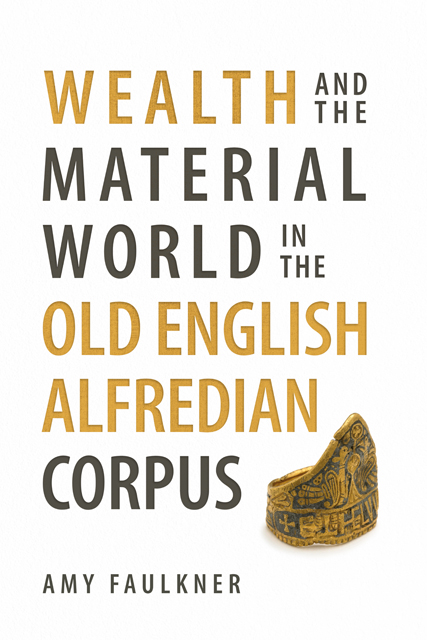Book contents
- Frontmatter
- Dedication
- Contents
- Illustrations
- Acknowledgements
- Abbreviations
- Introduction
- l Books and Ladders: The Speaking Prefaces
- 2 The Stream of Wealth: The Old English Pastoral Care
- 3 True Riches: The Old English Boethius
- 4 The Familiar and the Strange: The Old English Soliloquies
- 5 Treasure in Heaven: The Prose Psalms
- Conclusion: Transformations in Prose and Poetry
- Bibliography
- Index
- ANGLO-SAXON STUDIES
Conclusion: Transformations in Prose and Poetry
Published online by Cambridge University Press: 14 June 2023
- Frontmatter
- Dedication
- Contents
- Illustrations
- Acknowledgements
- Abbreviations
- Introduction
- l Books and Ladders: The Speaking Prefaces
- 2 The Stream of Wealth: The Old English Pastoral Care
- 3 True Riches: The Old English Boethius
- 4 The Familiar and the Strange: The Old English Soliloquies
- 5 Treasure in Heaven: The Prose Psalms
- Conclusion: Transformations in Prose and Poetry
- Bibliography
- Index
- ANGLO-SAXON STUDIES
Summary
The aim of this study has been to re-evaluate the role of material things, especially wealth, in Alfredian literature through the lens of Augustine's principles of use and enjoyment, and the supposed binary between thing and object articulated by thing theory. Critics have long observed that Alfredian literature appears to be more tolerant of material resources than the Latin texts on which the translations are based, especially when those material things are shown to be useful: the most obvious and famous example of this tolerance for useful things is the ‘tools of a king’ speech in the Old English Boethius, with which this book began.
However, this book has demonstrated that the Alfredian translations go beyond this supposed binary of either using wealth as a tool, or enjoying it immoderately. Certainly, the translators appreciate the usefulness of wealth, and condemn excessive indulgence in it; but this is not the limit of their engagement with wealth. Rather, wealth emerges as something fluid and ever-changing. It is at once of this world and the next, as well as a bridge between the two. The Alfred Jewel, as I argued in the first chapter, is emphatically a ‘thing’, a piece of vibrant matter, to borrow from Bennett. The jewel, I suggest, is not only an object which one might use as a guide to find wisdom, but also a thing, with its own agency and identity, to be enjoyed for its own sake. The prefaces and epilogues of the Alfredian corpus are filled with things – mainly books – which are both useful tools and independent things: their vibrant materiality cannot be ignored. We might use them as a ladder to heaven or to wisdom, but their agency in the prefaces means that we cannot dismiss them as tools.
When we turn to the translations themselves, we find a similar panoply of material things. The prose preface to the Pastoral Care betrays a fear of what happens when meaningful things stop being signs, and are only things, when we appreciate books and treasures only because of their materiality, and not because of their power as signs for something greater. In the translation itself, we find a stream of wealth which runs from earth to heaven, much like the stream of wisdom which runs from heaven to earth in the verse epilogue.
- Type
- Chapter
- Information
- Publisher: Boydell & BrewerPrint publication year: 2023



